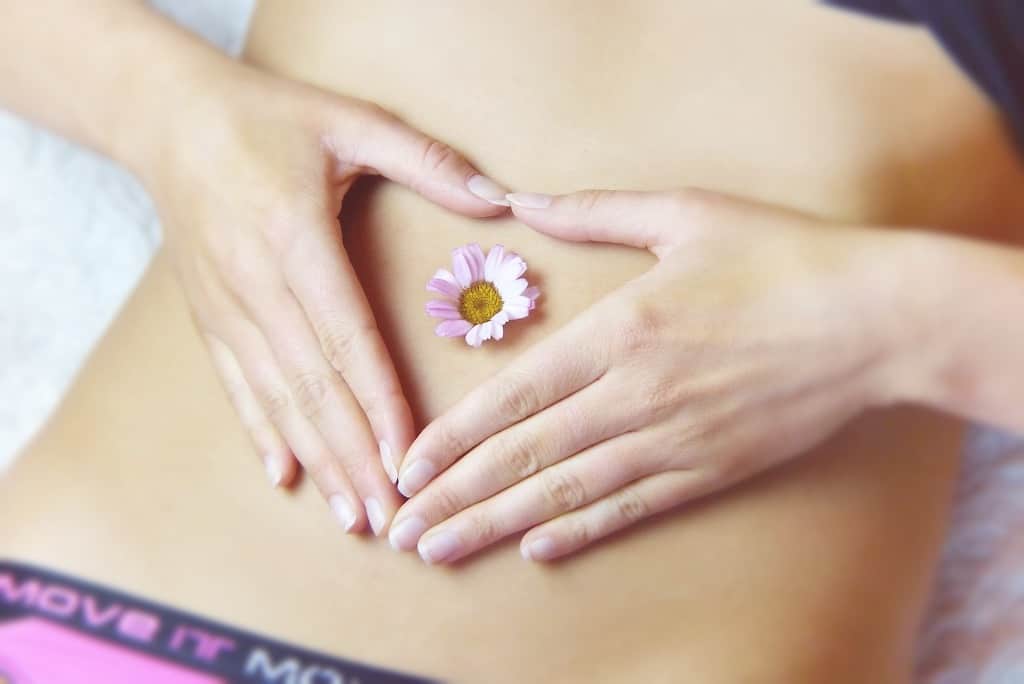Hypnotherapy for Menopause – The 3 stages of menopause.
Contents
Perimenopause, when a woman may notice changes in her body and mental state, can start up to 10 years before menopause starts. So many women begin to notice symptoms in their 40s.
Menopause – This is a natural part of a woman’s life. A woman is officially post-menopausal a year after her last period, but menopause symptoms can start many years before.
Post menopause – this is when your periods have stopped for 12 months. The average age in the UK for this is 51, but it can normally range from 45 to 55.

Menopause happens when levels of the hormone, oestrogen, begin to drop. Periods become erratic and other symptoms start. Menopause can have a massive impact on a woman’s life. Affecting their work, social life and relationships.
The phase leading up to the final period, known as perimenopause, can be a time of transition in terms of what’s happening hormonally and physically and can be hard for many women as they experience the effects of these bodily changes.
What happens when you menopause
The word menopause means the final period and it is a sign that the ovaries have quietened down and stopped working and are no longer producing the same amount of oestrogen. The time leading up to this is known as perimenopausal, which may or may not be symptomatic. You will only know when you have been through menopause when you have had the absence of periods for 12 months.
Changes in periods are very common during perimenopause; they can get lighter, get heavier and become irregular. It is not uncommon to not have a period for 5 or 6 months, then a period can come. It is only when those periods have gone completely for 12 months that you would be post-menopausal.
1% of women become menopausal under the age of 40
0.1% of women become menopausal under the age of 30
In women under 45, a blood test may be useful to determine if you are going through menopause, but in women over 45, they are not very helpful, as the hormones are naturally fluctuating.
Seeing a healthcare provider is essential, in order to rule out the possibility of anything else such as thyroid problems, anaemia or depression. Just because a woman aged 46 is very tired and putting on weight, you can’t automatically jump to the conclusion that it is perimenopause, as this could be due to her having thyroid issues.
What are the symptoms associated with menopause?

If you are going through menopause, then you may have found a combination of treatments to help you, or you may be still trying to find what works best for you. Hormone Replacement Therapy (HRT) is commonly prescribed to women to help with menopausal symptoms but for some, HRT isn’t suitable.
Can hypnotherapy help with menopause?
My hypnotherapy for menopause treatment can support women going through menopause by reducing stress and anxiety, teaching you relaxation techniques to support your overall well-being so you can regain your confidence and self-esteem, treating insomnia and reducing hot flushes using guided imagery.
Hypnotherapy can help with your emotions as well as your physical well-being, helping you to feel empowered and generally more balanced, dealing with the changes in your body during this natural process.
Hypnosis is a deep state of relaxation. When in this daydream state your mind is more suggestible. During the hypnotherapy sessions, I will guide you into a trance-like state, where you will become deeply relaxed. I will then make positive suggestions for change.
Evidence
Research shows hypnotherapy for menopause can be effective in treating for reducing hot flushes and night sweats. In a study published in the journal of Psychosomatic Obstetrics and Gynaecology, researchers found that women who underwent hypnotherapy for menopause had a significant reduction in the number of hot flushes and night sweats compared to a control group.
Another study published in the Journal of the American Medical Association found that hypnotherapy was an effective treatment for breast cancer survivors experiencing hot flushes and night sweats.
“By using hypnotherapy for menopause it can help to reduce some of the symptoms you’re experiencing to improve your quality of life.”
Why do hot flushes happen?
Your hypothalamus, which is a part of your brain, is the part that regulates your body temperature. It controls your heating and cooling. If you’re too hot it cools you down, and if you’re too cold it warms you up.
The neutral zone is the range that your hypothalamus considers to be the ideal temperature. The neutral zone is quite wide so your body won’t react to small fluctuations in temperature. But during menopause, your oestrogen levels start to drop and this affects your hypothalamus and your neutral zone narrows. This makes your body more sensitive and will react to small fluctuations in temperature.
So your hypothalamus thinks you’re overheating when you’re not. This triggers your cooling response, the blood vessels near your skin dilate giving you that flushed feeling, your heart rate increases and heat evaporates from your skin causing you to sweat.
How hypnotherapy can help with hot flushes.
When helping ladies who are going through menopause. I use hypnotherapy to help you to regain control over your body, by doing this it can reduce hot flushes, reduce stress, anxiety and help with insomnia.
Learning a breathing technique which is comfortable for you – By doing this you are telling your body you are safe and this switches off the anxious feelings. Also, by doing this stops the stress response which is known as the fight or flight response, which makes the hot flush worse, and can even stop it before it happens.
During my hypnotherapy for menopause treatment, we can focus on hot flushes, if you’re experiencing them. I will make suggestions to your subconscious mind about being cool. An example would be, drinking an ice-cold drink on a hot day, or stepping into a lake, how cool it feels as you walk in deeper and deeper, feeling your body cooling, soothing, feeling refreshed. Doing this helps your brain regain control of the thermostat and turn it down, helping you take back control.
How hypnotherapy for menopause can help with anxiety
Menopause can be a really difficult and challenging time for many women, but hypnotherapy for menopause can be an effective way to help manage the physical and emotional symptoms. Research has shown that hypnotherapy can help reduce hot flushes, night sweats, anxiety depression and mood swings.
If you’re experiencing menopausal symptoms and are looking at trying hypnotherapy for menopause, it is important to find a qualified hypnotherapist. They will help you to achieve the best possible results. Use the button below to contact me to arrange a free consultation.
Menopause can make ladies very emotional. During menopause our oestrogen levels begin to drop, oestrogen doesn’t just regulate the ovaries, it acts as an emotional regulator as well, having an effect on the brain.
The body’s stress-regulating organs are also affected. As a result, we become more sensitive to stress, which increases anxiety and that makes us more susceptible to mood swings and depression. By using hypnotherapy for menopause we can help to reduce these symptoms by promoting relaxation and reducing anxiety and stress.
Evidence
A study published in the Journal of Advanced Nursing found that hypnotherapy was an effective treatment in reducing anxiety in menopausal women. The study’s participants reported a significant reduction in anxiety after having hypnotherapy.
Another study published in the Journal of Clinical Psychology found that using hypnotherapy for menopause was an effective way In treating menopausal women by reducing their depression and anxiety.
Menopause is a natural transition that women will go through to reach post-reproductive health.
The effects of oestrogen
There are oestrogen receptors throughout the body and how each woman responds to the lack of oestrogen can vary significantly; whether or not she is experiencing symptoms, what type of symptoms she is having, how severe the symptoms are and the amount of impact they are having on her quality of life.
The most common symptoms women experience are flushes and sweats. Other symptoms include joint aches, anxiety, poor sleep, irritability and low mood. These are the symptoms that normally start early in this transition; from producing oestrogen to no longer producing oestrogen, then after a few years, there is an intermediate range of symptoms that often start from being low on oestrogen. These tend to affect the bladder and the vagina.
Evidence
Some trials have been carried out at King’s College Hospital, known as MENOS, and these found that if you went into menopause with negative expectations you had a harder time with symptoms.
Hypnotherapy can support you through this, helping you get rid of those negative thoughts. Helping you to feel in control of what is happening with your body.
With the bladder, the lack of oestrogen can affect how it functions. You may notice that you are going to the toilet more often and may start to need to go to the toilet during the night. UTIs are also more common, as the membranes become less lubricated and they become less flexible and this is an easy transit for bacteria to go up into the urethra, and in turn, potentially causing bladder infections.
Vaginal dryness
Vaginal dryness, discomfort, irritation – the tissues in the vagina become a little less flexible, so there can be anything from mild discomfort to micro tears or really painful sex that can’t be tolerated and needs to be treated in a specific way.
The consequence of those menopausal symptoms can be less confidence, self-esteem and low libido.

Effects on Bone Health
A later consequence of the lack of oestrogen is on your bone health and cardiovascular health. It can impact other organs quite significantly. Oestrogen protects your bones, that’s why women can get osteoporosis as they age, and it also protects the heart.
Some women like to use herbal remedies, but it is important to remember that herbal remedies can have a lot of drug interaction or side effects with other medications, so it is important to get some specialist advice if herbal remedies are being used.
Evidence
On the website for Newson Health Menopause Society, a major survey by GP specialist Dr. Louise Newson of 3,800 UK women found that:
99% of respondents said their perimenopausal and menopausal symptoms had led to a negative impact on their careers, with more than a third saying that the impact was significant.
59% had taken time off work due to their symptoms.
18% of them were off for more than 8 weeks.
Reasons for being off included:
- 45% reduced efficiency
- 26% poor quality of work
- 7% poor concentration
- Half of the 50% who took more than 8 weeks off resigned or took early retirement.
- 21% passed on the chance to take a promotion they would have otherwise considered. 19% reduced hours and 12% resigned.
- 60% of women said their workplace offered no menopause support.
The survey also reveals that 5.2% who had a sickness certificate issued for time off work stated menopause, while worryingly more than a third had documented anxiety or stress.
And just one in four (26%) of women discussed their hormones with their doctor with 29.7% prescribed antidepressants. This is despite NICE guidance stating antidepressants should not be prescribed for menopause-related low mood.
For far too long, women have had to suffer from debilitating symptoms or having to have to leave careers behind. Women should be supported through this process, and by using hypnotherapy, I’ll be supporting you, giving you your confidence back, so you’re in control of your symptoms. This will in turn reduce anxiety, so you are able to enjoy your life.
